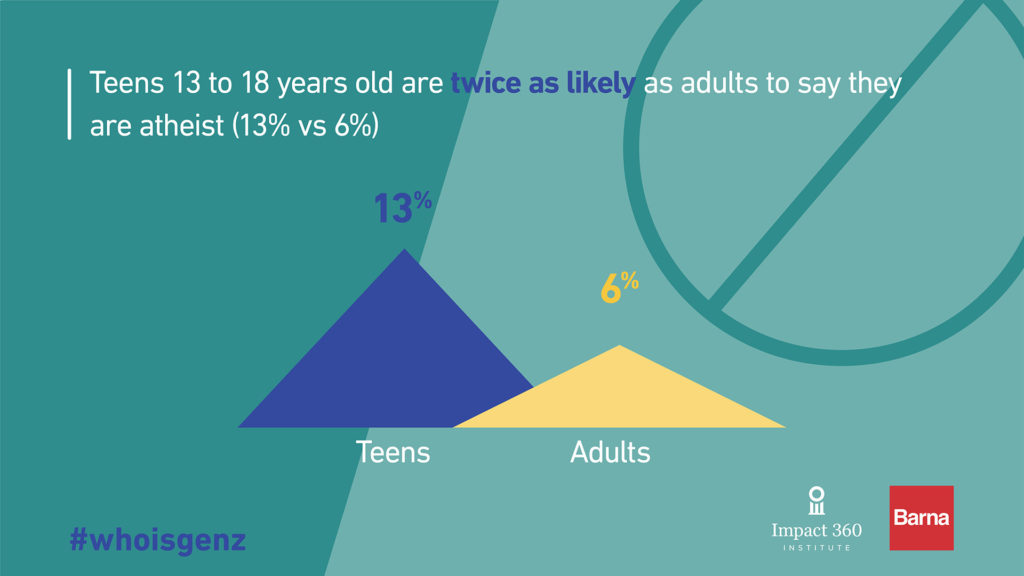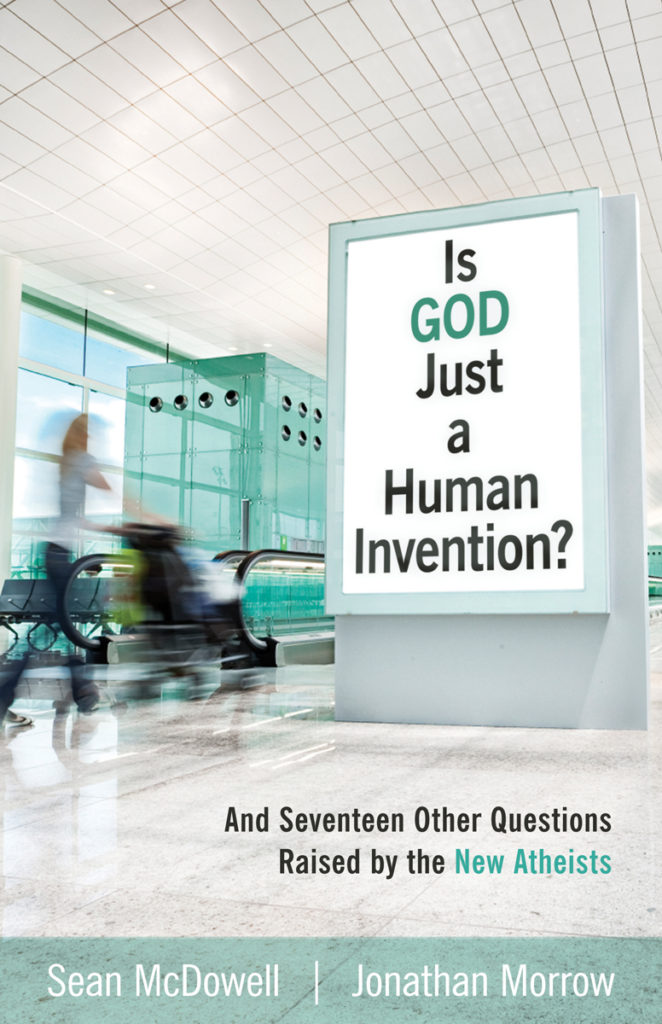Atheism is on the rise in Generation Z.
In fact, teens, 13 to 18 years old are twice as likely as adults to say they are atheist (13% vs 6%).
Atheism is on the rise in Generation Z.
Over the past year as Director of Cultural Engagement here at Impact 360 Institute, I have been working with the David Kinnaman and the awesome team at the Barna Group studying Gen Z—the next, next generation.
One of the trends that was surprising about this research was that unbelief is increasing at a substantial rate among Gen Z.
Gen Z Twice as Likely as Adults to Say They are Atheists
But what kind of atheists are Gen Z? And why is Atheism on the rise among Gen Z?
Two Kinds of Atheism
Alain de Botton, in an interview with Vox, explains Atheism 2.0:
“It’s to distinguish it from the modern incarnation of atheism, which was promulgated by people like Richard Dawkins and Christopher Hitchens that really made the central aspect of atheism the question of whether one did or didn’t believe. And I suppose I’m interested in the kind of atheism that starts with the assumption that of course God doesn’t exist, we made him up, that’s fine.”
The New Atheists argue that God doesn’t exist while Atheism 2.0 assumes that God doesn’t exist. Those are two very different approaches and it remains to be seen which one Gen Z will gravitate towards.
The idea that someone should just be “religious” or “Christian” is evaporating (and that’s actually not a bad thing if for no other reason than we know where people stand). So I think it is fair to say that unbelief is on the rise among the next generation.
The New Atheists argue that God doesn’t exist while Atheism 2.0 assumes that God doesn’t exist.
Sean McDowell and I wrote Is God Just a Human Invention? And Seventeen Other Questions Raised By the New Atheists to engage these questions.
As we work with Christian teenagers in our summer Immersion and 9-month fellows program, one of the most popular topics we discuss with teenagers is atheism.
They are asking. We need to be ready with an answer (cf. 1 Peter 3:15).


